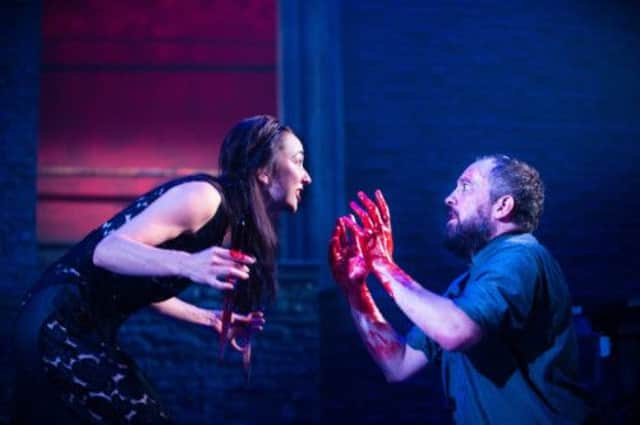Theatre review: Macbeth, Perth Theatre


Macbeth - Perth Theatre
* * *
It’s so well known, indeed, that many members of the audience can quote whole chunks of it by heart.
While none of these are reasons for avoiding Shakespeare’s most famous tragic text, they do suggest that any director approaching it should have a clear sense of why it is important to re-examine this play right now.
Advertisement
Hide AdThe problem with Rachel O’Riordan’s new Perth Theatre production, though – co-produced with the Tron in Glasgow, where it appears next month – is that while it hints tantalisingly at some of the reasons why it might be important to create a new Macbeth in Perth, in 2013, it never quite achieves the sense of purpose that would fully make the case.
There’s no doubt that O’Riordan and her team have been paying attention to some vital aspects of the play’s historic setting. Kenny Miller’s sombre, open set has a towering back wall full of huge, elegant window embrasures, hinting at the ruined great hall of a mediaeval palace in Dunfermline or Linlithgow; and Kevin Treacy’s lighting is superb, subtly shifting the space from battlefield to battlement to castle hall.
There’s also no doubt that the production’s voice is a strongly Scottish one, ranging from Sean Scanlan’s establishment-accented Duncan to Paul Rattray’s brooding Glaswegian Macduff.
And in one of its most intriguing strands of thought, this staging is almost entirely male. The murder of Lady Macduff is cut, and the three witches are played – in a series of sudden metamorphoses – by the three attendant lords, Ross, Lennox and Caithness. Leila Crerar, as Lady Macbeth, becomes the only woman in the cast, a 21st century estuary wild child set adrift in a world of raging mediaeval warriors.
Yet for all these fascinating hints and possibilities, this Macbeth never quite seems to gain a persuasive sense of direction. Crerar somehow ends up delivering Lady Macbeth’s mighty poetry with the vocal tone and body-language of an exasperated girlfriend in an office comedy.
Keith Fleming’s Macbeth is physically rugged and imposing, and his performance notably less nervous – and more shaped by the power of Shakespeare’s poetry – as the action unfolds, yet it still looks like a work in progress.
Advertisement
Hide AdIt certainly bodes well for this Macbeth that it gathers strength in the second half, as Macduff and Malcolm forge their vital alliance. The cast are young, committed, hard-edged, interesting. On the weekend of a huge march for Scottish independence, though, this might have been a time for a Macbeth that would truly reflect on the late-mediaeval politics of this play, with its image of an English-backed army marching on Scotland to restore proper government.
O’Riordan has missed her chance of that and also of the many other facinating versions of the play that her production foreshadows, but never fully embraces.